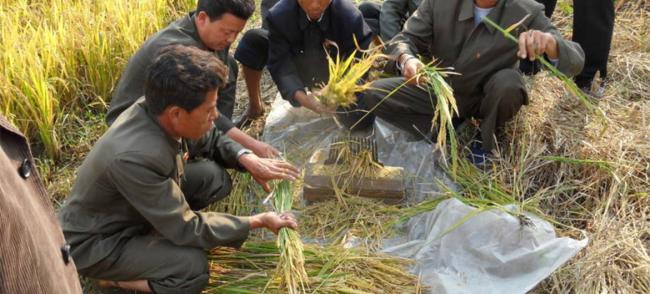
DPR Korea: UN says $111 million needed to provide life-saving aid, tackle malnutrition
New York, Apr 13 (IBNS): The United Nations and its partners are urgently requesting $111 million in humanitarian funding to assist millions of people in the Democratic People’s Republic of Korea (DPRK), including children whose growth has been stunted because they are not getting enough to eat.
“Humanitarian assistance is a vital lifeline for millions of ordinary people living in DPR Korea,” UN Resident Coordinator in the north Asian country, Tapan Mishra, said Thursday.
“However, funding has been rapidly declining every year, with less than one-third of the amount required for humanitarian programmes raised in 2017,” he added.
According to the UN Office for the Coordination of Humanitarian Affairs (OCHA), amidst political tensions, chronic food insecurity, early childhood malnutrition and nutrition insecurity are widespread in DPRK.
More than 10 million people, or 40 per cent of the DPRK’s population, are believed to need humanitarian assistance. Insufficient intake of nutrition continues to be a serious concern with more than one-quarter of children stunted.
OCHA cited many complex, intertwined reasons for the high rates of undernutrition in DPRK, including, mountainous terrain, with only 17 per cent of land good for cultivation, and farming largely reliant on traditional farming methods. Further, changing weather patterns have left the country vulnerable to droughts and floods, which often result in low agricultural production.
People also struggle to access basic services, with a large portion of the population living without a reliable source of safe water and almost a quarter without basic sanitation facilities, contributing to serious health concerns.
The Needs and Priorities Plan 2018, released on Wednesday in Pyongyang, outlines the financial needs to cover roughly six million people, including funding for activities to enhance access to nutritious food, healthcare, water and sanitation services, as well as to make communities resilient to natural disasters.
Mishra said that last year’s programme reached more than six million people with aid.
“Yet, without adequate funding, agencies will be forced to scale-down their life-saving work, with serious impacts on the lives of ordinary people,” he stressed.
Support Our Journalism
We cannot do without you.. your contribution supports unbiased journalism
IBNS is not driven by any ism- not wokeism, not racism, not skewed secularism, not hyper right-wing or left liberal ideals, nor by any hardline religious beliefs or hyper nationalism. We want to serve you good old objective news, as they are. We do not judge or preach. We let people decide for themselves. We only try to present factual and well-sourced news.







